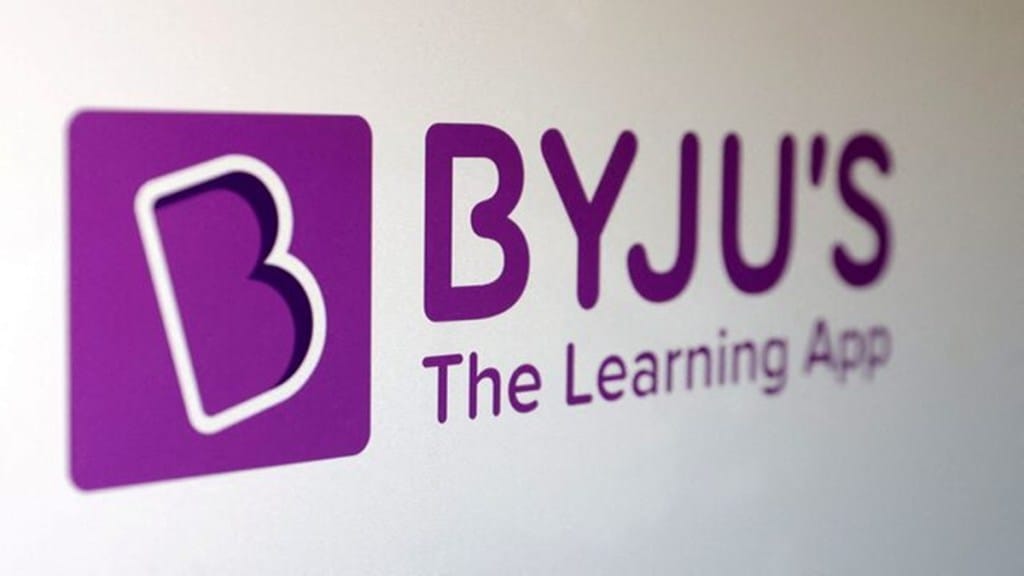The Directorate General of GST Intelligence (DGGI) is likely to approach the National Company Law Tribunal (NCLT) soon, seeking to recover Rs 230-250 crore as taxes from the US subsidiaries of embattled edtech major Byju’s.
The tax liability has been computed on certain supplies of the US-based subsidiaries to Indian receivers.
Official sources said Byju’s had kept these transactions “off its books”, and thus didn’t pay any taxes on them to GST authorities. “The DGGI has learnt this recently, and approached the edtech company to pay their dues,” an official said.
FE reached out to Byju’s for comments, but couldn’t get any response.
Byju’s parent company ‘Think and Learn’ is undergoing insolvency proceedings in the NCLT. “We informed the insolvency professional about the taxes Byju’s owes, but our request was rejected, as we got late in filing the claim,” an official said. “But we are going to exercise all legal options to recover the tax dues,” the official said, adding that the DGGI may consider filing a plea in the NCLT.
Sources said that only those services which are provided by US subsidiaries in India fall under the ambit of GST. The services that are purely international, made by the offshore arms, don’t owe any tax to domestic authorities.
Under GST laws, for the services that are directly provided by the US arms to consumers in India, GST will have to be deposited by the overseas arms, whereas on services provided to third-party businesses or the Indian company, the tax will be paid by the recipients under the reverse charge mechanism (RCM).
Ankur Gupta, practice leader-indirect tax, SW India, explained that services such as online content delivery, sponsorship of Indian events, or participation in events in India could attract GST. “Byju’s needs to carefully evaluate the nature of each service and its place of supply to determine compliance obligations,” he said.
According to the Insolvency and Bankruptcy Code (IBC), creditors generally have 90 days from the date of the commencement of the corporate insolvency resolution process (CIRP) to file their claims with the resolution professional (RP); but this time frame can be extended in certain situations with proper justification for the delay.
In case of rejection of claims of a creditor by the RP, IBC provides recourse by means of an application before the NCLT, which offers an opportunity to the creditors to justify why the claim should not be rejected. Further, the Code allows for an appeal before the National Company Law Appellate Tribunal (NCLAT), against the NCLT order, and the Supreme Court.
Sumant Nayak, senior partner, Desai & Diwanji, said: “It is of paramount importance to note that the courts in a catena of judgments have held that the claims of a creditor could not be rejected solely on the grounds of delay in claim submission.”
On July 16, the NCLT had admitted the Board of Control for Cricket in India’s (BCCI) petition seeking insolvency proceedings against Byju’s parent Think and Learn over its inability to pay dues of Rs 158 crore. The next hearing on the matter is scheduled on November 18. The BCCI has, in fact, sought withdrawal of the insolvency case against Byju’s, as both parties have agreed on a settlement.
Last month, the SC had set aside a judgment of the NCLAT, which allowed for a settlement between Byju’s and the BCCI. A three-judge bench had held that there was “grave deviation from procedure” in bringing the case to the NCLAT itself (which delivered its ruling in August).
The SC mandated that Byju’s deposit the Rs 158-crore settlement amount, previously agreed upon with the BCCI, into an escrow account overseen by the committee of creditors (CoC), and allowed for the settlement to continue, but under the strict supervision of the CoC.
The apex court’s order followed an appeal by US-based creditor Glas Trust Company, which alleged that the settlement funds raised by Riju Raveendran, brother of Byju’s founder, should have been allocated to financial creditors, and not directly to BCCI – an operational creditor.
In case, the application for insolvency is withdrawn by the BCCI, the GST authorities would directly reach out to Byju’s US arms and the Indian company for recovery of dues, the officials said.
